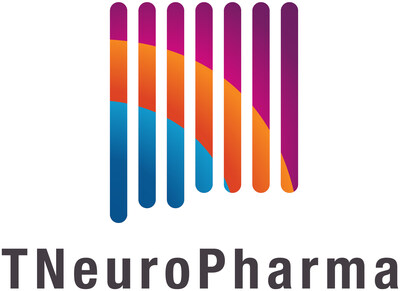ALBUQUERQUE, N.M., Sept. 11, 2024 /PRNewswire/ -- T-Neuro Pharma, a leading biotechnology research company dedicated to developing innovative therapies for neurodegenerative diseases, announced that its groundbreaking research on Alzheimer's disease has been highlighted in a commentary published in the Proceedings of the National Academy of Sciences USA (PNAS), a peer-reviewed journal of the National Academy of Sciences.
The commentary, authored by renowned scientists Germán Plascencia-Villa, Rudolph J. Castellani, and George Perry, underscores the potential paradigm shift in Alzheimer's research brought by T-Neuro Pharma's recent findings.
4 Key Points from the Commentary:
- Challenge to Amyloid Cascade Hypothesis: The commentary emphasizes that while amyloid deposits are a major feature of Alzheimer's disease, the popular amyloid cascade hypothesis has limitations in explaining disease onset and progression.
- Immune System's Role: T-Neuro Pharma's research suggests that certain T cell changes may initiate Alzheimer's-like pathology in animals, including amyloid accumulation.
- Potential Paradigm Shift: The authors suggest that T-Neuro Pharma's findings could fundamentally shift the focus of Alzheimer's research, moving away from viewing amyloid as causative to seeing it as an effect of other factors like T cell changes.
- New Research Directions: The commentary highlights the potential of T-Neuro Pharma's work to open new avenues for understanding Alzheimer's biology and developing novel therapeutic approaches.
George Perry, Ph.D., Professor Semmes Foundation Distinguished University Chair in Neurobiology at The University of Texas at San Antonio, said that as a reviewer of studies, this is the "most exciting study he's read in more than a decade."
"As researchers, we are always looking for an upstream event and this study delivers an upstream event for Alzheimer's," Perry says. "The study is revolutionary because it redefines the target for research investigation and therapeutic development."
Dr. Peter Schmidt, Chief Scientific Officer at Rho, says the early 2000s drove a focus on cellular processes in neurodegenerative diseases. As the scientific community looked at the accumulation of pathological proteins, frequent hints suggested that cellular energetics could be a factor.
"The T-Neuro Pharma team traced down the origins of this process, which provides evidence worthy of investigation in human trials," Schmidt says. "The discovery of a connection to T cells and immunological signaling links together several previously recognized but poorly understood processes. We look forward to seeing this validated and — hopefully — therapeutically treated in human trials."
For Christopher Wheeler, Ph.D. and CSO of T-Neuro Pharma, the company's mission is personal. He began his Alzheimer's research when his mother was diagnosed with Alzheimer's when he was doing post-graduate training at Stanford University.
"It took almost two decades to convince ourselves — and reviewers — that the data wasn't lying," Wheeler says. "After such a long road, it's humbling and gratifying that such prominent leaders in the aging and Alzheimer's fields have the same vision of our work's potential as we do. I'm very eager to translate that potential into reality, both on the scientific and clinical product levels."
About T-Neuro Pharma
T-Neuro Pharma is a biotechnology research company that develops disease-modifying therapies for Alzheimer's and other neurodegenerative diseases. The company targets the root cause of these devastating conditions, to improve the lives of patients and their families. For more information, please visit the company’s website or contact info@tneuropharma.com for media interviews.
![]() View original content to download multimedia:https://www.prnewswire.com/news-releases/t-neuro-pharmas-trailblazing-alzheimers-research-receives-acclaim-in-pnas-commentary-302244344.html
View original content to download multimedia:https://www.prnewswire.com/news-releases/t-neuro-pharmas-trailblazing-alzheimers-research-receives-acclaim-in-pnas-commentary-302244344.html
SOURCE T-Neuro Pharma






